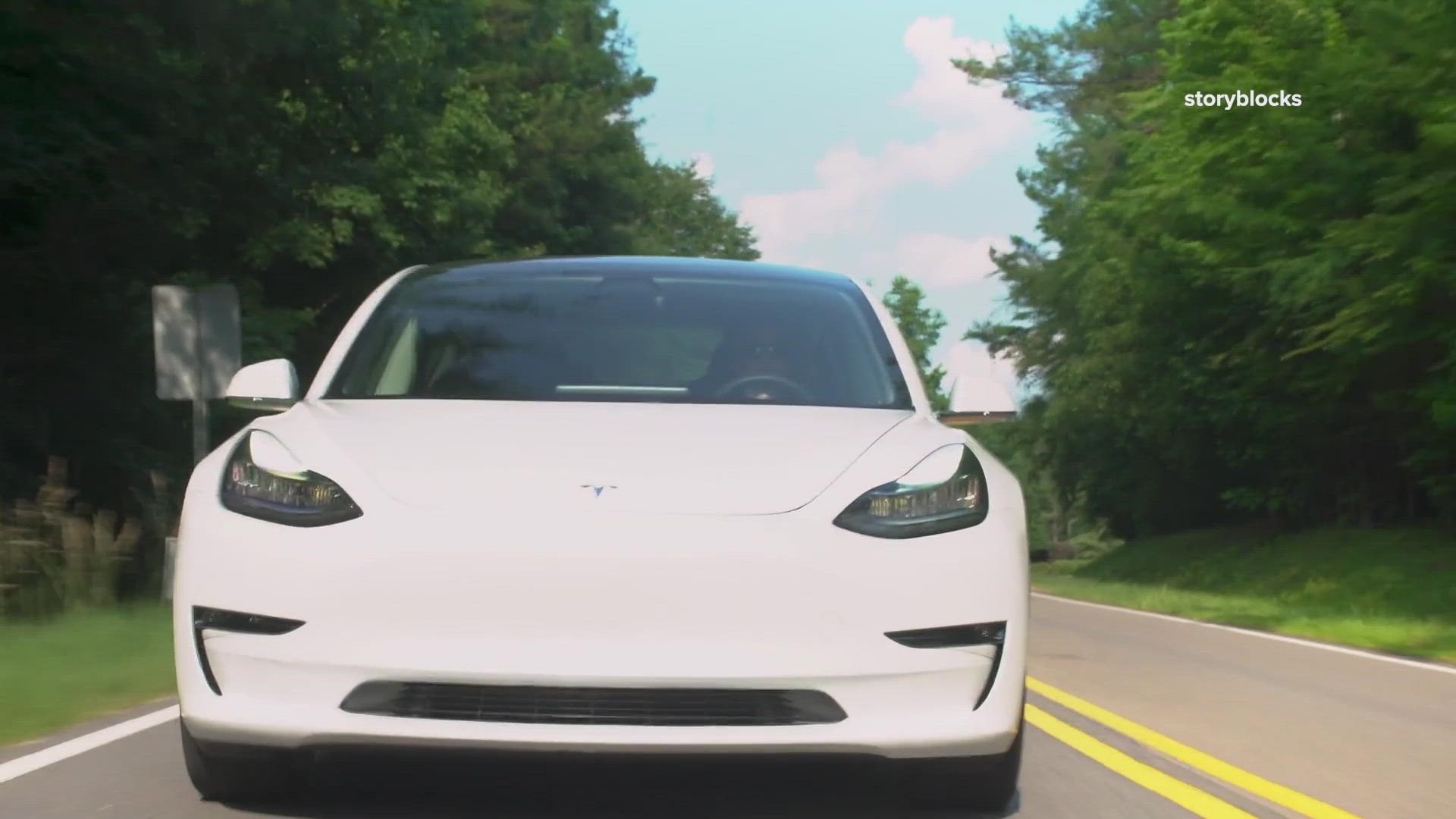NORFOLK, Va. — Author's note: The video above is on file from October 2021.
Virginia is getting over $15 million to build a network of electric vehicle (EV) charging stations, part of the Biden administration's effort to reduce vehicle emissions by accelerating the adoption of EVs.
U.S. Sens. Mark Warner and Tim Kaine announced Thursday that the federal funding is the first of five installments, totaling over $106 million for Virginia over the next five years.
The funding is coming from the Infrastructure Investment and Jobs Act (IIJA), which passed Congress with bipartisan support and was signed into law by President Joe Biden on Nov. 15, 2021.
Under the law, the U.S. Department of Transportation (DOT) established the National Electric Vehicle Infrastructure (NEVI) Formula Program, which will give states money to build EV charging stations along major highways, including interstates, over five years.
This could make long-distance trips using EVs more convenient. According to data from the Environmental Protection Agency, many of the newest model EVs can go over 200 miles on a single charge. For people traveling a long way, they'll need to stop and recharge often.
Expanding the number of EV charging stations is part of the Biden administration's stated target to make half of all new vehicles sold zero emissions by 2030. In August, the White House said its target would put the U.S. on track to decrease greenhouse gas emissions.
Sens. Warner and Kaine said the funding will encourage more Virginians to adopt clean vehicles and help ensure access to charging stations while traveling. The lawmakers touted EVs as "a critical step" in addressing climate change and protecting public health.
While the market is still small, more people have switched from gas-powered cars to EVs over the last few years.
According to a 2021 Pew Research Center study, the total number of EVs registered in the U.S. went from under 300,000 in 2016 to over 1.1 million in 2020. Also, 39% of U.S. adults said they were very or somewhat likely to seriously consider buying an EV the next time they’re in the market for a car.
Conversely, the study also found that U.S. EV sales have slowed down over the last few years.

